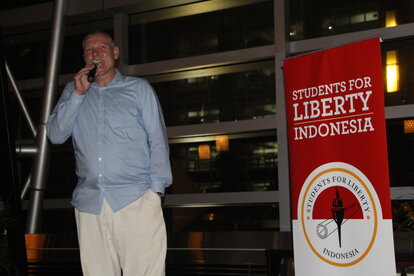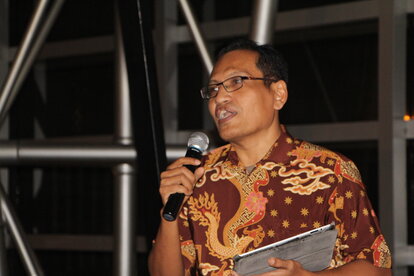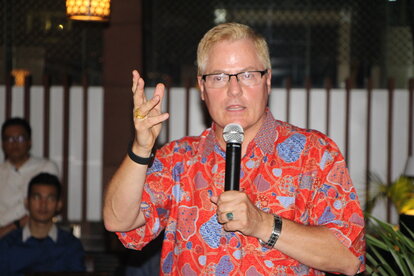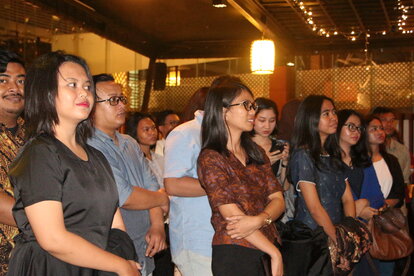Demokrasi
On Peace, Love and Liberty
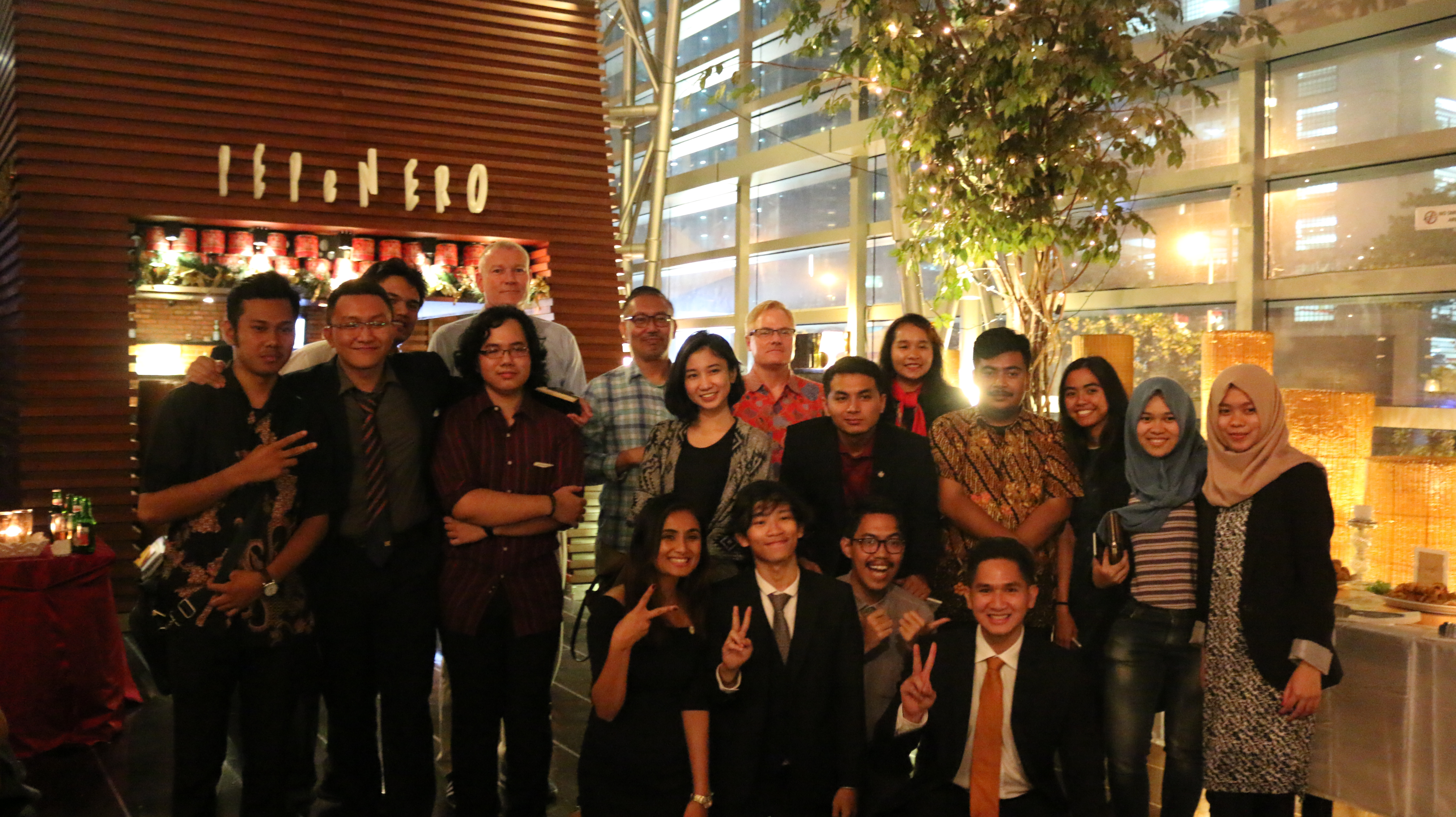
“Si Vis Pacem, Para Bellum”, a Latin adage back in the 4th – 5th Century, which translated as “If you want peace, prepare for war” may become a question now. Hundred years ago, peace was achieved as a result of war. Therefore, some may say that “war is inevitable”. War is justified under the assumption that two different ideologies or interests among nations can never work or benefit each other. But on the other hand, war also emerges in many other forms. Differences based on religious, ethnics or other backlashes against other have created not only protracted but also long armed conflicts which lead to death and poverty. The question remains, is war really inevitable now?
On August 26th 2016, Friedrich Naumann Foundation (FNF) Indonesia in cooperation with Freedom Institute and Students For Liberty hosted a public seminar on “Peace, Love and Liberty” with Dr. Tom G. Palmer as the author and editor of “Peace, Love and Liberty” and Ulil Abshar Abdalla, Director of Indonesian Conference on Religious Pluralism as speakers. Both speakers gave enlightening perspective on Liberalism, freedom and how it actually can manage conflicts of differences.
Liberalism actually opposed the assumption that “war is inevitable”. Liberalism – or should we refer it as Classical Liberalism – ideally believes in limited role of government and a society which gives room for everybody; a society which respect the rights of others. The perspective actually rejects the distinction between “friends” and “enemy”. As Dr. Palmer said, “liberalism is about being true to who you are without enemies.” In this argument, identity – race, religious, ethnicities or whatever it is – is not merely defined by how to identify enemy. Identity is not only subordinating one towards the other. Instead of depicted as an abolition or struggle against other, Liberalism is more interested in creating a room where everyone can live together in peace and mutual benefits. Or in a simpler way, “how can we be friends?”
There are many examples in which eternal hatred is not always an answer. For instance, the Declaration of Independence of the United States of America which depicted the British not as perpetual enemy, but still firmly declared their independence as a nation. The experience of Liu Xiaobo – the 2010 Nobel Prize winner – is also an example that there’s no such a rigid distinction between friends and enemy. Xiaobo is a Chinese literary critics and also human rights activist who was imprisoned for years and considered subversive for Chinese Communist Party. But, later in his statement after released from jail, he stated that “I have no enemies.” To quote from his statement, “Hatred can rot away at a person's intelligence and conscience. Enemy mentality will poison the spirit of a nation, incite cruel mortal struggles, destroy a society's tolerance and humanity, and hinder a nation's progress toward freedom and democracy.”
Related to the main topic “Peace, Love and Liberty”, Dr. Palmer used the analogy of “Game Theory”. War is more likely represented by zero-sum and negative-sum game in which only one sides or even no one benefit from the “game”. Meanwhile, liberalism is more interested in a positive-sum game, a situation in which can mutually benefit each other. The establishment of League of Nations and later United Nations are also the example to promote international cooperation instead of conflicts.
The idea is to believe that peaceful cooperation through free market, trade and mutual respect can change the world. Research by Harvard evolutionary psychologist Steven Pinker shows that deaths from war, murder, and violence generally are at an all-time low as a percentage of the population (quoted from “Peace, Love and Liberty” book). By this say, war is not inevitable; with liberty and peaceful cooperation as the ideal project. The idea will be very applicable in Indonesia. Considering its multicultural society, mutual respect and peaceful cooperation shall empower Indonesian to become a more inclusive nation – a nation which creates rooms for everyone. A nation that unites in diversities.
